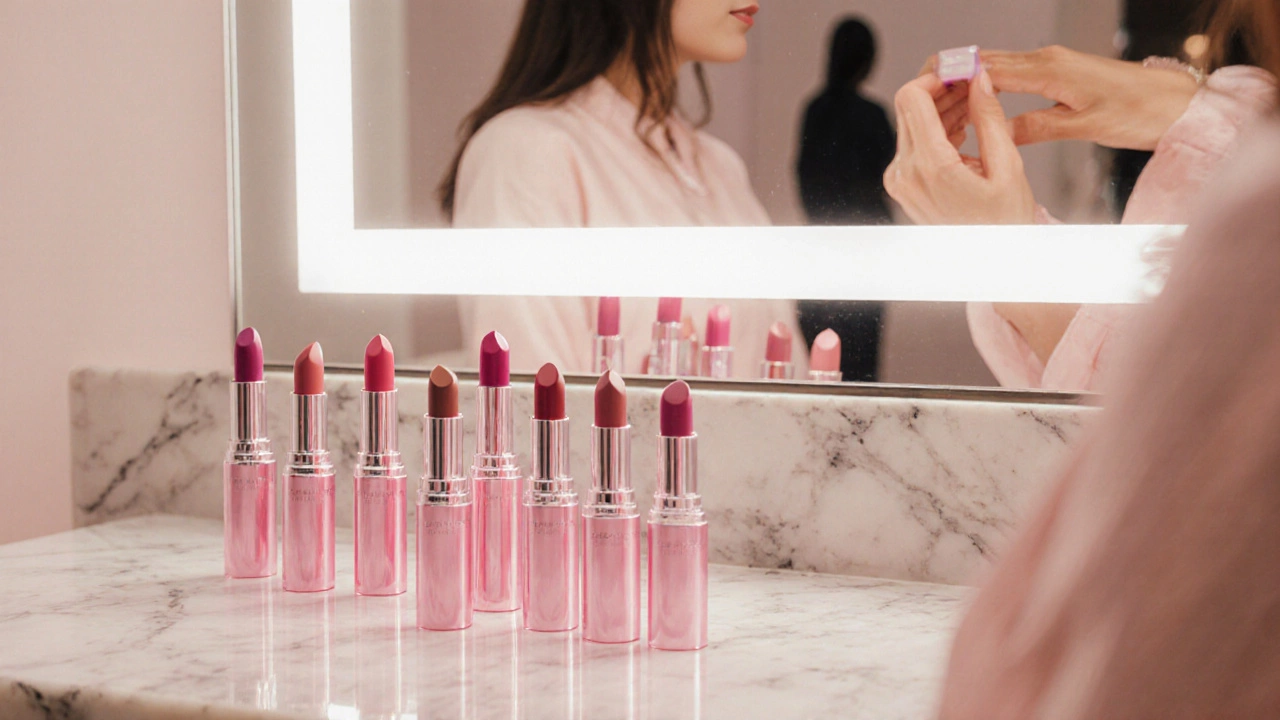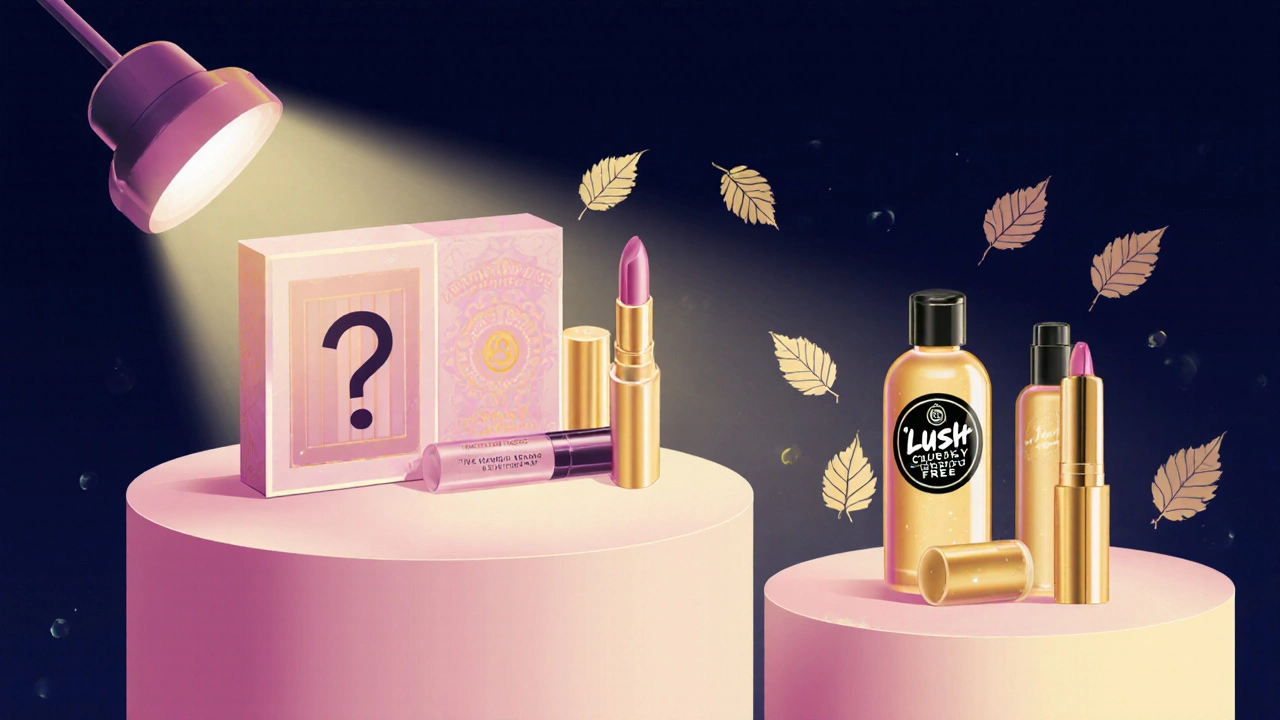
Cruelty-Free Verification Tool
Check if a beauty brand is truly cruelty-free based on key criteria discussed in the article.
When you glance at the pink‑wrapped bottles in the dressing‑room mirror, the question ringing in most shoppers’ heads is simple: Victoria’s Secret cruelty free. The brand’s image is built on sensuality, but does that extend to how they treat animals?
What “cruelty‑free” actually means
In the beauty world, “cruelty‑free” signals that a product and its ingredients were never tested on animals at any stage of development. The definition is backed by a handful of internationally recognised certifications. If a brand can’t prove it, the label is just marketing fluff.
Victoria’s Secret’s official stance
Victoria’s Secret states in its public FAQs that it does not test finished products or ingredients on animals. The company also points to the 2018 shift away from animal‑derived ingredients as evidence of a more ethical approach.
However, the statement comes with a fine print: the brand still sells its products in mainland China, where the law mandates animal testing for all imported cosmetics.
Regulatory landscape: U.S., EU and China
The United States has no federal ban on animal testing for cosmetics, leaving the practice to a patchwork of state laws and corporate policies. The U.S. Food and Drug Administration (FDA) merely requires safety data, which many companies generate through animal studies.
Conversely, the European Union outlawed animal testing for finished cosmetic products in 2013 and banned the marketing of cosmetics tested on animals in 2017. Brands that meet EU standards can display the EU ‘no animal testing’ label.
China’s Cosmetics Regulation, updated in 2021, still obliges foreign brands to submit animal test results for market entry. This loophole forces many “cruelty‑free” companies to choose between Chinese sales and a clean cruelty‑free claim.
Third‑party certifications and why Victoria’s Secret lacks them
The most trusted cruelty‑free seals come from organisations like Leaping Bunny and PETA. To earn these logos, a brand must submit a full supply‑chain audit, certify that none of its suppliers use animal testing, and undergo annual re‑certification.
Victoria’s Secret does not carry any of these logos. The brand’s own cruelty‑free claim rests on a self‑declaration, which lacks the transparency and third‑party verification that consumers increasingly demand.
Ingredient sourcing and supplier oversight
Even if a company never tests in‑house, it can still be complicit if a raw‑material supplier conducts animal tests. Brands like The Body Shop and Lush publish detailed supplier lists and require signed statements that no animal testing is performed.
Victoria’s Secret’s public documents provide only high‑level assurances, not supplier‑by‑supplier disclosures. This opacity makes it difficult for auditors to confirm a truly cruelty‑free supply chain.
How Victoria’s Secret stacks up against recognised cruelty‑free brands
| Brand | Certification | China Sales | Supply‑Chain Transparency | Public Stance on Animal Testing |
|---|---|---|---|---|
| Victoria’s Secret | None | Yes | Limited public data | Self‑declared “no animal testing” |
| The Body Shop | Leaping Bunny | No | Full supplier list, signed statements | Never tests, advocates bans worldwide |
| Lush | Leaping Bunny | No | Ingredient sourcing disclosed, regular audits | Zero animal testing policy |
| Too Faced | PETA‑Approved | No | Supplier contracts include cruelty‑free clauses | Committed to cruelty‑free product line |
Common misconceptions
- “If a brand says it doesn’t test, that’s enough.” - Without third‑party verification, the claim can’t be independently confirmed.
- “Selling in China automatically means animal testing.” - Not always; some brands use alternative in‑vitro data, but the law still requires a test certificate for most imports.
- “Natural ingredients are cruelty‑free.” - Many natural extracts are sourced from farms that use animal testing for safety validation.

How to verify cruelty‑free status before you buy
- Look for recognised logos: Leaping Bunny, PETA‑Approved, or EU “no animal testing” symbol.
- Check the brand’s official website for a detailed animal‑testing policy and supplier disclosures.
- Consult independent databases such as PETA’s Beauty Without Bunnies or Leaping Bunny for up‑to‑date listings.
- Avoid products that are sold in mainland China unless the brand explicitly states they use non‑animal testing methods for that market.
- Read recent news articles or press releases - policies can change quickly.
Bottom line - Is Victoria’s Secret cruelty‑free?
Based on the evidence available in 2025, Victoria’s Secret cannot be confidently labeled as cruelty‑free. The brand’s self‑declared stance lacks third‑party certification, and its continued sales in China expose its products to mandatory animal testing under current regulations. For shoppers who prioritise a truly cruelty‑free routine, certified alternatives like The Body Shop, Lush, or Too Faced provide a more reliable guarantee.
Key Takeaways
- Victoria’s Secret says it does not test on animals, but the claim isn’t backed by an external audit.
- Because the brand sells in China, many of its products are subject to legal animal testing.
- Certified cruelty‑free brands offer transparent supply chains and clear logo guarantees.
- Use recognised certifications and independent databases to verify any brand’s cruelty‑free status.
Does Victoria’s Secret have any cruelty‑free certification?
No. As of October 2025, Victoria’s Secret does not display Leaping Bunny, PETA‑Approved, or any other recognised cruelty‑free seal on its packaging or website.
Why does selling in China affect cruelty‑free status?
Chinese regulation requires imported cosmetics to submit an animal‑testing certificate. If a brand chooses to keep its Chinese market, the product is effectively tested on animals, disqualifying it from most cruelty‑free definitions.
Can I trust a brand that only self‑declares a cruelty‑free policy?
Self‑declarations lack independent verification. Trustworthy cruelty‑free brands submit supply‑chain audits to third‑party organisations and display the corresponding logo.
What are the best certified cruelty‑free alternatives to Victoria’s Secret makeup?
Brands like The Body Shop, Lush, Too Faced, and e.l.f. Cosmetics carry Leaping Bunny or PETA‑Approved badges and do not sell in mainland China, making them solid cruelty‑free choices.
How often should I check a brand’s cruelty‑free status?
Policies can change yearly. Review a brand’s cruelty‑free claim at least once a year, especially before a major purchase.